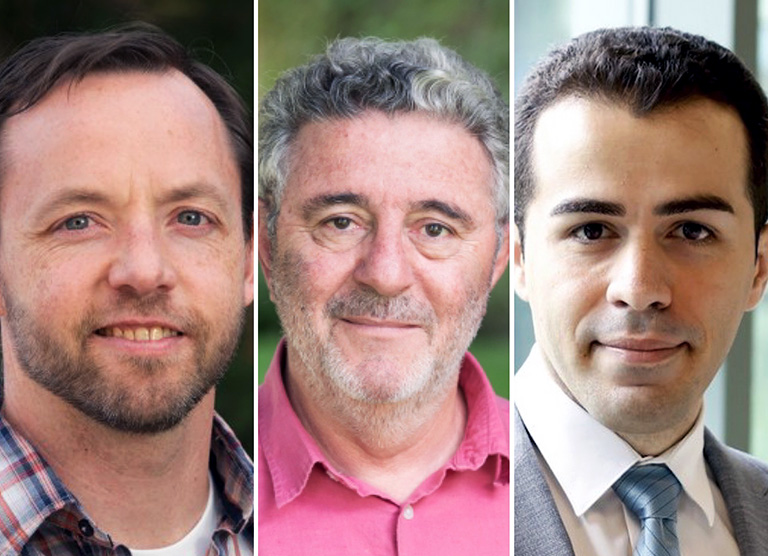Colorado State University’s School of Global Environmental Sustainability has announced its three 2022-23 Resident Fellows and the winners of its 2022-24 Global Challenges Research Teams.
The newly announced SoGES Resident Fellows with one-year terms:
- Terrence Iverson, associate professor, economics, College of Liberal Arts. Iverson’s project will build on the concept of a climate club to link trade and climate agreements, and, using game theory, create a tiered approach that takes into account the difference between larger and smaller countries. Iverson will develop a “two-tier climate club” in which a coalition that includes the U.S., the European Union, and China uses the threat of trade-based penalties to induce countries to contribute to global carbon abatement.
- Dimitris Stevis, professor, political science, College of Liberal Arts. The goal of Stevis’ Resident Fellow project is to provide a more comprehensive account of just transitions as a relevant, necessary and appropriate strategy for all sustainability transitions. The products will be: story map(s) of just transitions that illustrate and describe the suitability of just transitions across sustainability transitions; and, building on that, a comprehensive and inclusive database of just transition policies, advocacy, and research.
- Mostafa Yourdkhani, assistant professor, mechanical engineering, Walter Scott, Jr. College of Engineering. Yourdkhani’s Resident Fellow project will explore potential solutions for developing new materials and processing conditions for rapid, energy-efficient manufacture of recyclable, high-performance composite materials to enable sustainable and affordable production of lightweight composite structures.
The SoGES research team project winners with two-year terms:
- Being in the Field, which brings new approaches to “deconstructing how transitions to an environmental or sustainability science career path has unique tipping points for underrepresented students triggered during the field experience.”
- Team members: Gillian Bowser, associate professor, ecosystem science and sustainability, Warner College of Natural Resources; Meena Balgopal, professor, biology, College of Natural Sciences; Phil Halliwell, research scientist, Natural Resource Ecology Laboratory; Sara Bombaci, assistant professor, fish, wildlife and conservation biology, Warner College of Natural Resources.
- Leveraging social networks and mobile technologies to promote human-carnivore coexistence, which seeks to “investigate the culture of carnivore tolerance and intolerance, specifically how beliefs and experiences are transmitted through social networks.”
- Team members: Jonathan Salerno, assistant professor, human dimensions of natural resources, Warner College of Natural Resources; Kevin Jablonski, assistant professor, animal sciences, Agricultural Sciences; Stewart Breck, Center for Human-Carnivore Coexistence, Warner College of Natural Resources.
- Wildfire Smoke Impacts on U.S. Solar Energy Resources and Agrivoltaic Systems, which will “conduct the first longitudinal study of wildfire smoke impacts on utility-scale photovoltaic (PV) output across the contiguous U.S.”
- Team members: Jesse Burkhardt, assistant professor, agricultural and resource economics, Agricultural Sciences; Jeffrey Pierce, professor, atmospheric science, Walter Scott, Jr. College of Engineering; Nathan Mueller, assistant professor, ecosystem science and sustainability, Warner College of Natural Resources and soil and crop sciences, College of Agricultural Sciences.